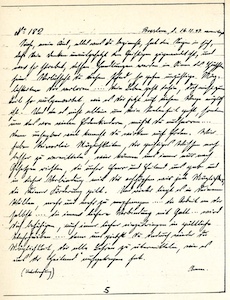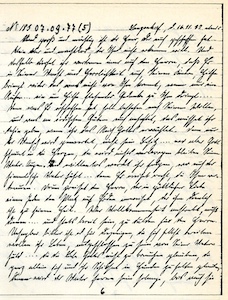B.D.-No. 1878
The innermost instinct for truthfulness can be followed by a person and also not.... This is likewise an act of self-determination in the stage of free will; no one forces man to decide otherwise than his innermost instinct. This drive, however, is the expression of the spirit within him. When God set the beings free from the power of the adversary, this was not an act of violence in itself but a release from the power. The spiritual felt this, and it used the freedom, however again to fall away from God, i.e., it did not make use of the freedom offered to it to finally return to God, but subordinated itself anew to the will of the adversary, and so now the freedom of its will was taken from it by being banished into the form. It now had to act according to God's will, but the slightest giving up of resistance against God brings relief to its state and now awakens the desire in the being for complete freedom, which at the same time is expressed in the will to serve. Thus the being itself makes the final decision by being able to enter the stage of free will as soon as its bound will decides to serve. The being therefore retains the right of self-determination.... The power was certainly taken away from God's adversary throughout immemorial times, but the being was never brought to God through compulsion, but this return to the father has to be accomplished by the being itself, and its will is complied with insofar as the fate in eternity completely corresponds to this will.... Whoever wants to be with God will be allowed to stay close to Him, whoever resists God will have to suffer inconceivably due to his distance from God. And both the separation as well as the unification has been brought about itself, thus the being has made use of the right of self-determination to which it is entitled.
Amen










